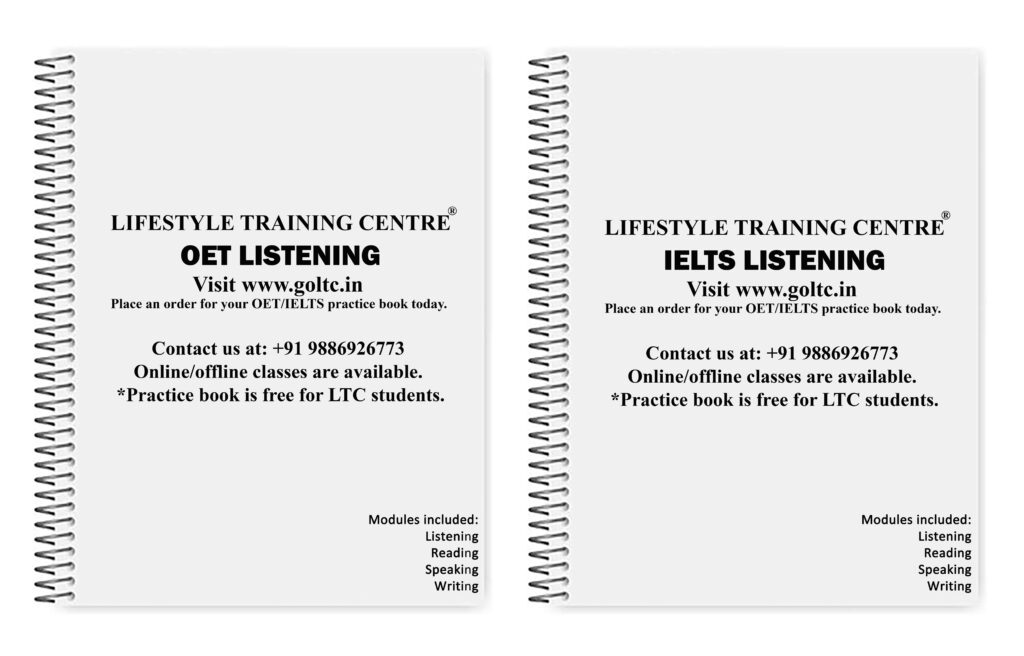Task 1
1.Who gave you your name?
It was my parents who bestowed my name upon me, with my mother playing a pivotal role in its selection. She spent considerable time researching names that carried meaning and significance, ensuring it was not just a label but a reflection of their hopes and dreams for me. They wanted something that resonated deeply with our family’s values and cultural roots.
2. Does your name hold a specific or extraordinary meaning?
Indeed, my name carries a remarkable meaning. It originates from a language rich in history and culture, where it translates to “serene” or “peaceful.” My parents deliberately chose this name with the hope that I would lead a life filled with calmness and harmony. For them, it symbolised their aspirations for me to be someone who spreads positivity and tranquillity wherever I go. This deep connection to its meaning makes me appreciate my name even more.
3. How do you regard your name?
I have a profound sense of appreciation for my name. Over the years, it has become an intrinsic part of who I am, and its unique qualities make it stand out. It’s more than just a word—it represents my identity, my family’s legacy, and the values they hoped I would embody. I’ve grown attached to its distinctiveness and the story behind it. Honestly, I cannot imagine being called by a different name—it would feel like losing a piece of myself.
4. In your homeland, do individuals place substantial importance on their names?
Yes, names in my country are more than just identifiers; they carry significant weight. Many are chosen with cultural or religious connotations in mind, reflecting values or virtues. There’s also a widespread belief that a person’s name can shape one’s character, influence life’s path, or even bring good fortune. For instance, parents might consult astrologers or religious figures to ensure the name aligns with positive omens. This deep-rooted respect for names makes them more than just labels—they are a vital part of one’s personal and cultural identity.
5. Would you entertain the idea of altering your name?
No, I would never consider changing my name. It holds immense sentimental value and is intertwined with my personal history. The name was chosen with so much care and affection by my parents, and it reflects their dreams and hopes for me. Altering it would feel like losing that connection. Moreover, my name has become a fundamental part of how I perceive myself and how others identify me. For these reasons, changing it simply doesn’t resonate with me.
6. Is the process of changing names facile in your country?
While it’s not an overly complicated process, changing a name in my country does involve certain legal formalities. Typically, it requires submitting an official application, providing valid reasons, and publishing the change in a government gazette or local newspapers. People often undertake this process for specific reasons, such as adopting a new religion, aligning their name with cultural practices, or addressing a personal preference. Although manageable, it’s not something people pursue lightly.
7. Who typically assumes the responsibility of naming infants in your country?
In my country, the primary responsibility of naming a child lies with the parents. However, it’s common for them to seek advice or suggestions from family members, friends, or even religious leaders. Naming ceremonies are often held, during which the name is revealed in a joyous and celebratory manner. This collaborative approach ensures the name not only reflects the parents’ wishes but also aligns with cultural and familial expectations.
8. Are there any distinctive traditions associated with naming children?
Yes, naming traditions in my country are steeped in cultural significance. It’s customary for parents to name their children after respected ancestors, deities, or historical figures as a way of honouring their legacy. Additionally, names might be chosen based on their auspicious meanings or association with specific days, stars, or events. In some regions, elaborate naming ceremonies are held where family and friends come together to celebrate the new addition and their chosen name.
9 .Which names dominate in your hometown?
In my hometown, traditional names remain highly popular. These names often carry profound cultural or historical meanings and are chosen to reflect qualities such as wisdom, strength, or beauty. For instance, the name Solomon is synonymous with wisdom and is highly revered. However, in recent years, there has been a noticeable trend towards modern and unique names, as parents seek to give their children a sense of individuality while maintaining a connection to tradition.
10. Do you entertain the notion that names can wield influence over a person’s life or destiny?
While I wouldn’t claim that a name determines one’s destiny outright, I do believe it can have a subtle yet meaningful influence on a person’s life. A name is often the first impression people have of someone, and its meaning or cultural significance can shape how others perceive and interact with them. Additionally, individuals often develop a sense of pride or identity linked to their name, which can positively influence their confidence and choices. That said, life’s trajectory is influenced by a myriad of factors, and a name is just one piece of the puzzle.
Vocabulary
Phrases
Idioms
Task 2
1. Describe a person you know who likes to talk a lot.
You should say:
– Who this person is
– How do you know him/her
– What he/she likes to talk about
– And explain how you feel about this person.
Task 3. Follow up questions
1. Why do you think some people like to talk more than others?
I believe some individuals have an innate personality trait that makes them more outgoing and communicative. They may enjoy sharing ideas, expressing themselves, or simply being the centre of attention. Others might talk more because they feel the need to connect with people or because they find it therapeutic to voice their thoughts.
2. Do you think talkative people are more successful in life? Why or why not?
While being talkative can be an asset in certain areas, such as networking or building relationships, it doesn’t necessarily guarantee success. Success often depends on a combination of skills, including listening, critical thinking, and persistence. However, talkative people might have an edge in roles requiring strong interpersonal skills or persuasion.
3. Do you prefer to have a conversation with a talkative person or a quiet one? Why?
It depends on the situation. With a talkative person, the conversation often feels lively and engaging, which can be enjoyable in a social setting. However, in more reflective moments, I might prefer a quieter individual who is a good listener and allows for deeper, more meaningful discussions.
4. Is being talkative considered a positive trait in your culture?
In my culture, being talkative is often seen as a double-edged sword. On the one hand, it’s viewed positively as it reflects someone’s confidence and sociability. On the other hand, excessive talking can sometimes be perceived as being overbearing or lacking self-control, especially in formal or professional settings.
5. What kinds of jobs are suitable for people who talk a lot?
Talkative people often thrive in jobs that require communication skills or public engagement. Roles such as sales representatives, teachers, lawyers, broadcasters, or customer service agents are ideal for them. These positions demand a natural ability to persuade, educate, or entertain through speech.
6. Do you think modern technology has affected the way people communicate? How?
Absolutely. Modern technology has revolutionised communication by introducing tools like instant messaging, social media, and video calls. While it has made conversations more convenient and accessible, it has also led to shortened attention spans and less face-to-face interaction. Some argue that it’s made communication more efficient but less emotionally connected.
7. Do people in your country prefer group discussions or one-on-one conversations?
It depends on the context. In professional or academic settings, group discussions are often preferred as they allow for diverse ideas and collaborative problem-solving. On the other hand, in personal matters, one-on-one conversations are favoured as they provide a private and focused space to share thoughts and feelings.
8. How can people improve their communication skills?
Improving communication skills involves both practice and awareness. Reading widely, participating in discussions, and observing good speakers can help build confidence. Additionally, developing active listening skills, maintaining eye contact, and being mindful of one’s tone and body language can significantly enhance communication.
9. Why do you think listening is as important as speaking in a conversation?
Listening is crucial because it ensures that communication is a two-way street. It helps build understanding, shows respect, and prevents misunderstandings. A good listener can also respond appropriately, making the conversation more meaningful. As the saying goes, “We have two ears and one mouth so that we can listen twice as much as we speak.”
10. Do you think people who talk a lot are better at resolving conflicts?
Not necessarily. While talkative individuals may be more willing to engage in discussions, conflict resolution often requires empathy, patience, and the ability to listen actively. Sometimes, those who are more reserved can handle conflicts more effectively because they focus on understanding the other person’s perspective rather than dominating the conversation.
List of vocabulary used (task 3)
- Innate – Inborn or natural.
- Outgoing – Friendly and socially confident.
- Centre of attention – The person who is the focus of interest.
- Therapeutic – Having a healing or calming effect.
- Asset – A valuable quality or skill.
- Combination – A joining or merging of different parts.
- Edge – A slight advantage.
- Interpersonal skills – The ability to interact effectively with others.
- Lively – Full of energy and enthusiasm.
- Double-edged sword – Something with both advantages and disadvantages.
- Overbearing – Unpleasantly domineering or arrogant.
- Lacking self-control – Not able to control one’s actions or emotions.
- Thrive – To grow or develop successfully.
- Persuade – To convince someone to do or believe something.
- Revolutionised – Completely changed or transformed.
- Convenient – Easy and suitable for a particular purpose.
- Emotionally connected – Having a meaningful bond with someone.
- Collaborative – Involving two or more people working together.
- Private – For personal or exclusive use; not public.
- Awareness – Knowledge or perception of a situation.
- Active listening – Fully concentrating on what is being said, rather than just hearing it.
- Respond appropriately – To give the right or suitable reply.
- Empathy – The ability to understand and share the feelings of another.
- Patience – The capacity to tolerate delay or trouble without getting upset.
- Perspective – A particular attitude or point of view.
Phrases and Meanings
- Sharing ideas – Exchanging thoughts or opinions.
- Connect with people – Establish a bond or relationship.
- Combination of skills – A mixture of different abilities.
- Respond appropriately – To give a correct or suitable reply.
- Stand out – To be noticeable or distinct.
- Two-way street – A situation involving mutual actions or benefits.
- Build understanding – To create mutual comprehension or awareness.
- Diverse ideas – A variety of opinions or thoughts.
- Private and focused space – A calm and exclusive environment for communication.
- Shortened attention spans – Reduced ability to concentrate for long periods.
Idioms and Meanings
- Centre of attention – Someone who attracts everyone’s focus.
- Double-edged sword – Something that has both benefits and drawbacks.
- Lightly pursued – Undertaken casually or without much effort.
- Piece of the puzzle – One part of a bigger situation or issue.
- Two-way street – A situation requiring effort or input from both sides.
- Bring good fortune – To bring success or luck.
- Shape one’s character – To influence someone’s personality or behaviour.
IELTS Speaking Task Topics
Click on any topic to explore more!
Names

Learn about the importance of names and their cultural significance.
Study / Job

Discuss various aspects of studying and working in different fields.
Hometown

Explore the charm of your hometown and its unique features.
Accomodation

Understand various types of accommodation and living situations.
Weather

Learn about how weather influences daily life and activities.
Time

Discuss the concept of time, its importance, and time management.
Television

Talk about the role of television in modern entertainment.
Museum

Discuss the cultural importance of museums and historical exhibits.
Holidays

Explore the significance of holidays and different celebrations.
Films

Learn about the impact of films on culture and society.
Leisure Time

Discuss how leisure activities impact personal well-being.
Sport

Talk about the role of sports in health, entertainment, and culture.
Vegetables and Fruits

Discuss the health benefits and importance of fresh produce.
Maths

Explore the role of mathematics in various aspects of life.
Sky

Discuss the beauty and scientific significance of the sky.
Clothes&Fashion

Explore how clothing reflects culture and personal expression.
Weekend

Discuss the importance of weekends and ways people relax.
Reading

Learn about the importance of reading and various reading habits.
Sleep

Explore how sleep impacts physical and mental well-being.
Trees&Plants

Discuss the environmental and health benefits of plants.
Newspaper

Discuss the evolving role of newspapers in the digital age.
Texting

Explore the role of text messaging in modern communication.
Memorising

Learn techniques for improving memory and memorization.
Travelling

Discuss the importance and impact of traveling in modern society.
Communication

Explore the modes and significance of communicating well
Letter&Email

Explore the differences and significance of letters vs. emails.
Swimming

Discuss the benefits of swimming for health and fitness.
Snacks

Explore the role of snacks in daily nutrition and lifestyle.
Photography

Discuss photography’s cultural and artistic significance.
Help

Talk about the importance of offering and receiving help.
History

Discuss historical events and their impact on modern society.
Handwriting

Explore the significance of handwriting in education and culture.
Music

Learn about the influence of music on emotions and society.
Colours

Discuss how colours affect perception and mood.
Teachers

Explore the role of teachers in shaping students’ futures.
Being Alone

Talk about the experience and benefits of spending time alone.
Teamwork

Learn the importance of teamwork in professional and social contexts.
Countryside & City

Explore the charm and benefits of living in the countryside.
Social Media

Discuss the impact of social media on society and relationships.
Friends

Explore the importance of friendships in life.
Artificial Intelligence (AI)

Talk about the future of AI and its role in society.
Climate Change

Discuss the causes and consequences of climate change.
Transportation

Explore different modes of transportation in your area.
Sustainable Transportation

Explore ways to make transportation more environmentally friendly.
Space Exploration

Learn about the latest advancements in space exploration.
Shopping

Explore how shopping influences culture and the economy.
Modern Technology

Discuss how modern technology is reshaping society.
Technology

Learn about the role of technology in everyday life.
Sustainable Living

Explore ways to live sustainably for the future of the planet.
Globalisation

Learn about the effects of globalisation on society and economies.
Global Warming

Discuss the causes, effects, and solutions to global warming.
Gender Equality

Explore the importance of gender equality in modern society.
Health and Fitness

Discuss the importance of maintaining a healthy lifestyle.
Renewable Energy

Learn about renewable energy sources and their impact on the environment.
Cultural Traditions in Kerala

Explore the unique cultural traditions of Kerala, your hometown.
Cultural Traditions in Your Country

Learn about the cultural traditions in your country.
Education System

Discuss the education system in your country and its effectiveness.
Traditional Cuisine

Explore the significance of traditional cuisines in your culture.
Do you need printed IELTS/ OET practice material? Place your order today. Available now for just Rs: 1,100 (including shipping all across India) Contact us at our WhatsApp number: +91 9886926773 to place your order. (Free for LTC students)

We hope this information has been valuable to you. If so, please consider a monetary donation to Lifestyle Training Centre via UPI. Your support is greatly appreciated.

Would you like to undergo training for OET, PTE, IELTS, Duolingo, Phonetics, or Spoken English with us? Kindly contact us now!
📱 Call/WhatsApp/Text: +91 9886926773
📧 Email: [email protected]
Visit us in person by following the directions on Google Maps. We look forward to welcoming you to the Lifestyle Training Centre.
Follow Lifestyle Training Centre on social media:
Thank you very much!
